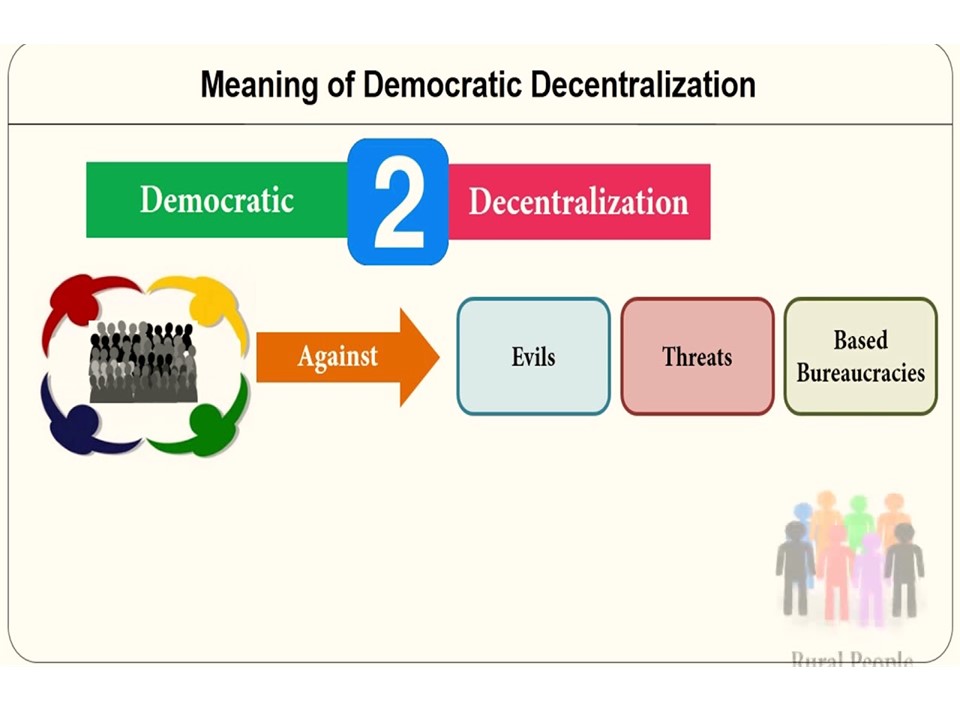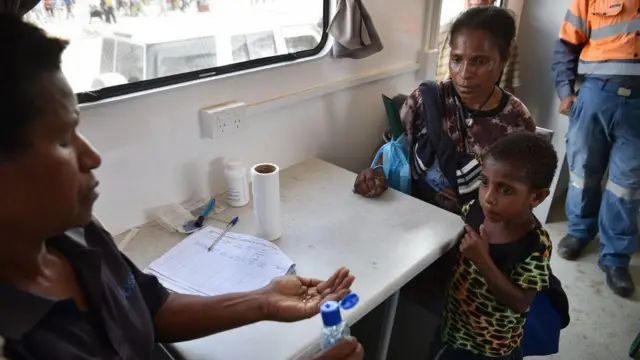- Courses
- GS Full Course 1 Year
- GS Full Course 2 Year
- GS Full Course 3 Year
- GS Full Course Till Selection
- Online Program
- GS Recorded Course
- NCERT (Recorded 500+ Hours)
- Polity Recorded Course
- Geography Recorded Course
- Economy Recorded Course
- AMAC Recorded Course
- Modern India, Post Independence & World History
- Environment Recoded Course
- Governance Recoded Course
- Science & Tech. Recoded Course
- International Relations and Internal Security Recorded Course
- Disaster Management Module Course
- Ethics Recoded Course
- Essay Recoded Course
- Current Affairs Recoded Course
- CSAT
- 5 LAYERED ARJUNA Mentorship
- Public Administration Optional
- ABOUT US
- OUR TOPPERS
- TEST SERIES
- FREE STUDY MATERIAL
- VIDEOS
- CONTACT US
Democratic Decentralisation in India
Democratic Decentralisation in India

Democratic Decentralisation in India
Why in News?
It has been almost 30 years since the ‘73rd and 74th Constitutional Amendment Acts’ were passed by the parliament to facilitate democratic decentralisation in India, but very little and actual progress has been made in this direction.
So, What is Democratic Decentralisation?
- It’s the process of devolving (giving away) the functions and resources of the state from the centre to the elected representatives at the lower levels so as to facilitate greater direct participation of citizens in governance.
- In other words, it means that precisely defined governance functions are formally assigned by law to the local governments which are backed by adequate transfer of financial grants and taxes, and they are given adequate staff so that they can carry out their responsibilities.
- 73rd and 74th amendment acts have given the constitutional status to Panchayati Raj Institutions (PRIs) in India and mandated the establishment of panchayats and municipalities as elected local governments.
- Local government, including panchayats, is a state subject in the Constitution, and consequently, the devolution of power, functions and authority to the panchayats has been left to the discretion of states.
- The constitution mandates that panchayats and municipalities shall be elected every 5 years.
Some Major Achievements of the Local Bodies are:
- Rising Women Representation:
- The proportion of elected women representatives has been steadily rising since the enactment of the 73rd Amendment Act.
- Currently, India has 260,512 Panchayats with 3.1 million elected representatives, of which a record 1.3 million are women.
- While there is merely 7–8% representation of women in Parliament and State Assemblies but it is 49% in case of elected local representatives (in states like Odisha it has crossed 50%).
- Led to creation of Healthy Competition among Various States:
- The passage of the 73rd and 74th amendment acts has created healthy competition among various states regarding devolution (3Fs: funds, functions, and functionaries).
- For Example:
-
- Kerala has devolved 29 functions to Panchayats.
- Rajasthan took the inspiration from Kerala to devolve many key departments such as health, education, women, and agriculture.
- Similarly, Bihar came out with the idea of “Panchayat Sarkar” and states such as Odisha have increased 50% seats for women.
-
Issues with Local Governments in India are:
- Lack of Funds: The money given to the local governments is inadequate to meet their basic requirements and there is little investment in enabling and strengthening local governments to raise their own taxes and user charges.
- Infrastructural Challenges:
- Some of the Gram Panchayats (GPs) do not have their own building and they share space with schools, Anganwadi centres and other places.
- Some have them own building but without basic facilities like toilets, drinking water, and electricity connection.
- While many Gram Panchayats (GPs) have internet connections but they are not functional in many cases. For any data entry purposes, panchayat officials have to visit Block Development offices and it delays the work.
3.Inadequate Staff:
-
-
-
-
- In many cases, Local governments do not have the adequate staff to perform even basic tasks.
- Furthermore, as most staff is hired by higher level departments and placed with local governments on deputation, they do not feel responsible to the latter.
-
-
-
4. Delay in Elections: States often postpone the elections and violate the constitutional mandate of 5 yearly elections to local governments.
5.Downgraded Role of Local Government:
a) In most cases, Local governments are merely acting as an implementation machinery rather than a policy-making body for local development. Technology-enabled schemes have further downgraded their role.
6. Huge Corruption: Criminal elements and contractors are more attracted to local government elections.
Conclusion
India is a very large and diverse country so here ‘over centralisation’ can’t be the solution for everything. So, Local government’s organisational structure has to be strengthened with sufficient fund and manpower. The ‘Ministry of Panchayati Raj’ should monitor the release and expenditure of Finance Commission grants to ensure that there is no delay in their release and it should also be ensured that grants are utilised in a proper and effective manner so that, it can ensure the ‘Grassroot Democracy’ in real terms which was the dream of Mahatma Gandhi too.
Official Secrets Act, 1923; and Section 152 of Bharatiya Nyaya Sanhita(BNS)


